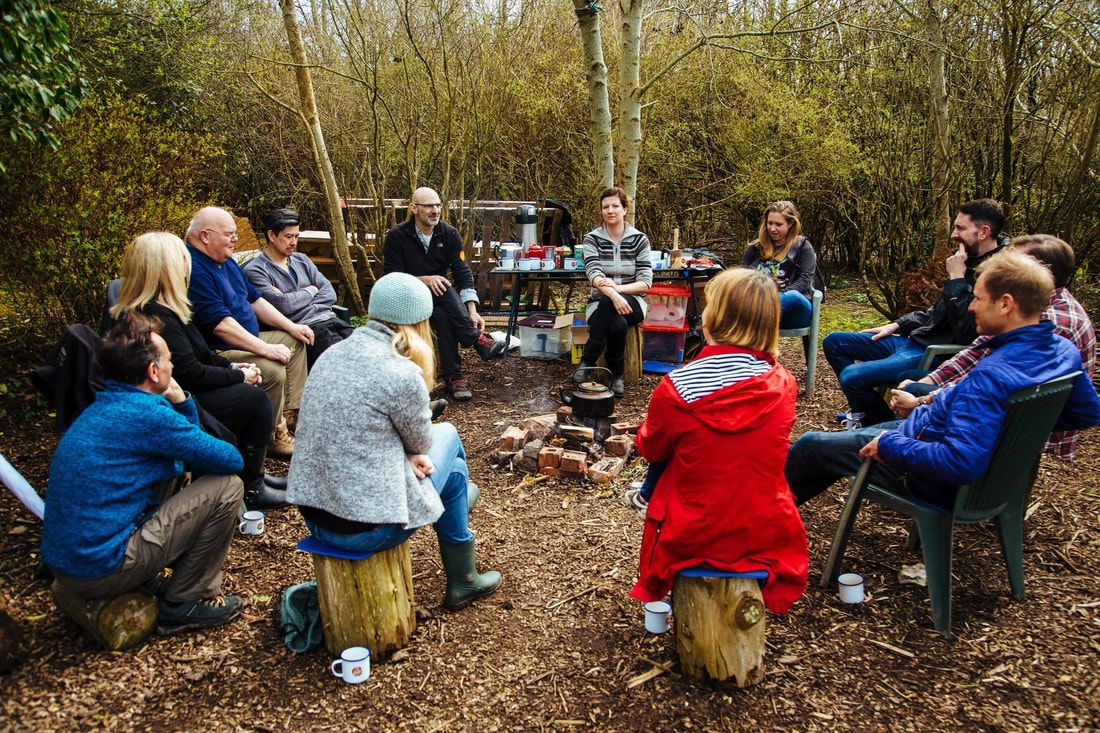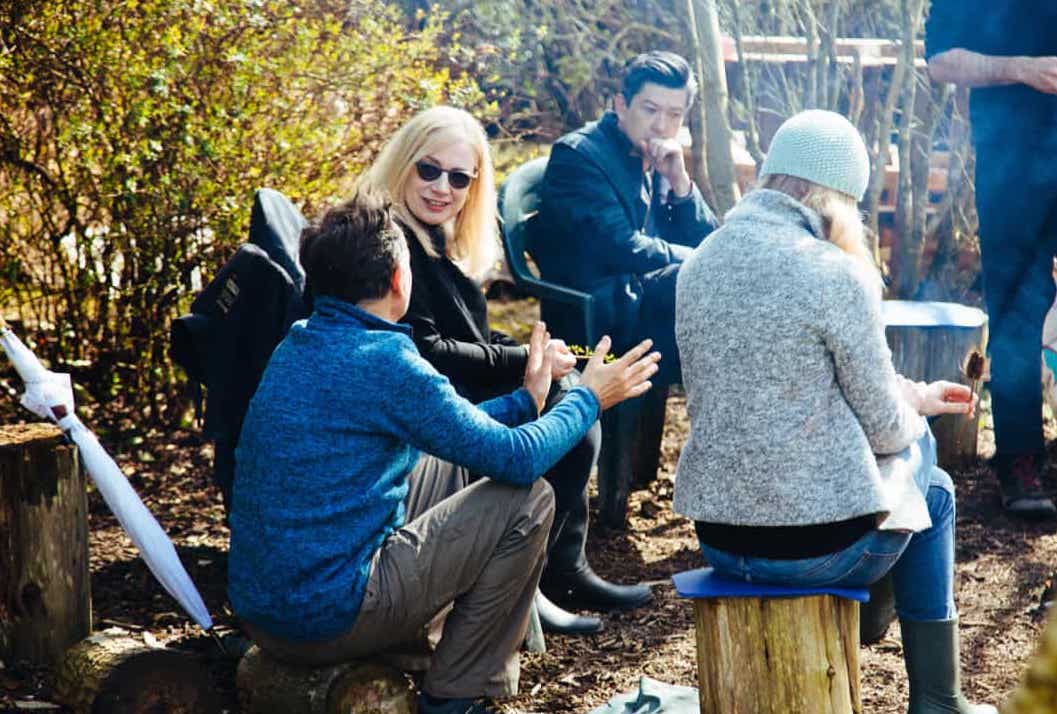|
We're excited to be launching a new programme for founders and business leaders, based around a fire in the wild.
We're fusing reflection with immersive nature activities to help you reconnect your business with your values and your purpose. It's called Campfire Catalyst: Leading with Purpose. It starts March 21st, in Brighton. If you'd like to join, early bird tickets available til Jan 31st. Details here (please share!) Technology now enables anyone to run a business wherever, and however, you choose. Coupled with a fundamental shift in attitudes to work, it’s clear that the very concept of what a ‘team’ means in the modern organisation is changing dramatically. As CEOs and team leaders you ignore these developments at your peril. How can you embrace these changes and continue to create happy, productive and successful teams in the 21st century? asks Lauren Psyk Remote workers at a co-working space: Photo: Shridhar Gupta/Unsplash Read time: 4 mins In 2019, people no longer ‘go to work’ in the same way they used to - in fact, you could say work is no longer a place, but a space. Business teams are not just spread across a city, but often across the globe. Many employees now enjoy flexible and remote working, which can no longer be seen as a perk but a central part of working life.
The digital world is not the only driver for this change in where and when we work. There has also been a dramatic shift in our very attitudes to our careers. Increasingly, salary is not seen as the key marker of success. Goals for career fulfilment now include being valued as an individual, working fewer hours, protecting your mental health and working for a more socially responsible organisation. When looking for new roles, a positive work/life balance comes before salary or career progression as one of the most important things employees seek. Bestselling books such as The 4-Hour Work Week promote the idea of living more and working less. Alongside this, social media means your employees are all busy cultivating a strong ‘personal brand’ online and individualism is valued above all else. In recruitment, the power is increasingly held by the applicants, who see themselves very much as their own brands and are asking: “Does this company fit with my values and my ethos? Can they give me the work fulfilment I’m after?” If you can’t deliver the lifestyle that a talented, young graduate is looking for, there are plenty of other creative, forward thinking startups and organisations who can. How Spending Time Around a Fire Had Unexpected Benefits, Both for Myself and for My Business17/1/2019
Getting a different perspective with like-minds around the fire was worth the investment, and got me some great new clients, says PR and communications consultant, Jill Woolf  When I saw the email come through from the NatWest Entrepreneur Accelerator for a ‘Mentors Go Wild’ event set in the great outdoors in Stanmer Park, my first reaction was “They’ll never get me in wellies round a camp fire!” I left the email in my inbox and carried on with daily life. Something about it must have resonated though because I was drawn back to it and reconsidered. As anyone who knows me well would expect, my initial concerns were over shallow (I prefer the word ‘practical’ – it’s all about personal branding) things like what the weather would do to my hair, and what would be the best thing to wear. Having assuaged my doubts on these, I focused on the benefits – spending time out of the office, getting back to nature, learning new things, looking at issues from a different perspective, sharing with strangers who didn’t know me and therefore would respond with potentially fresh ideas and views – and suddenly the idea seemed delightful. No email, no mobile phone, no interruptions for a whole morning. A focus on my own thoughts, plans and ideas. Learning. Listening. Interacting. Sharing. Helping others. And so I booked myself on, found my wellies and joined in. |
Author & CuratorNigel Berman is the founder of School of the Wild. Archives
March 2024
|
Leaders |
About Us
Support |
|





 RSS Feed
RSS Feed



